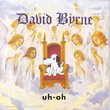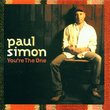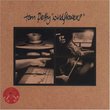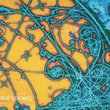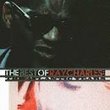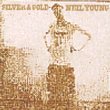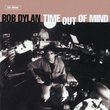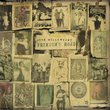| All Artists: David Byrne Title: Grown Backwards Members Wishing: 1 Total Copies: 0 Label: Nonesuch Release Date: 3/16/2004 Album Type: Import Genres: Alternative Rock, Pop, Rock Styles: Adult Alternative, Progressive, Progressive Rock Number of Discs: 1 SwapaCD Credits: 1 UPCs: 075597982626, 075597982664 |
Search - David Byrne :: Grown Backwards
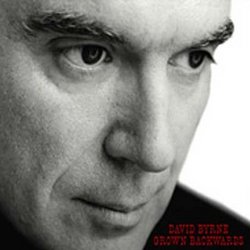 | David Byrne Grown Backwards Genres: Alternative Rock, Pop, Rock
CD > POPULAR MUSIC > ROCK |
Larger Image |
CD DetailsSynopsis
Product Description CD > POPULAR MUSIC > ROCK Similarly Requested CDs
|
CD ReviewsBeautifully crafted, sonically stunning - his best yet.... Brian | Galway, Ireland | 03/17/2004 (5 out of 5 stars) "I'm a big fan of David Byrne, I love his music - all the way from "Talking Heads '77" through crazy sound experiments like "My Life in the Bush of Ghosts" and "The Catherine Wheel" to the recent masterpieces "Feelings" and "Look Into The Eyeball". I know of no more consistently inventive artist still going strong..."Grown Backwards" however feels like something special. A limited pallette of minimal guitar, lush strings and inventive percussion opens up a world of musical possibilities - swooningly beautiful one moment, dark and melancholy the next and with a few diversions into full on funkyness in between. Add to that Byrne's voice at is richest and most controlled and the result is a truly incredible, satisfying listening experience.The opener "Glass, Concrete and Stone" sets the scene with it's "Eleanor Rigby" esque verses bursting to life with a soaring vocal and pulsating tabla drumming. "The Man Who Loved Beer" is a wonderfully melodic string drenched interpretation of the Lambchop original. "Au Fond Du Temple Saint" is almost painfully beautiful, Rufus Wainwright's deeper tones wrapping around Byrne's own strained but utterly disarming delivery..."Empire" is by far the weakest track - but it's supposed to be. Basically an imagined anthem for a rightwing administration it's swathed in an unsettlingly subtle backdrop of discordant horns and gently picked guitar... It definitely serves to musically undermine the pompous lyrics and vocal melody. A pretty effective piece of political Satire on Byrne's part but not the most wonderful listening experience!!"Little Apocalypse", more lush strings, more offbeat percussion and a brilliant transition from the rapped verses to the soaring chorus. Definitely one of the best tracks on the record. "She only Sleeps" is one of the many slow burning tracks on the record. It starts innocuously enough but goes all sorts of weird places lyrically and melodically... "The world is queer/and the human is strangest of all...""Dialog Box" is the centrepoint of the record, the only properly danceably funky track with its Stax/Motown horns and rhythm. Its a difficult number to keep still to and should be a hit single if there were any justice! It's up there with Byrne's best. "The Other Side of This Life" is another potential single with its swaying rhythm and wonderful syncopated strings... "Why" is just a beautiful melody, strings counterpoint and swirl around as once again subtle percussion drives the song towards spine tinglying key changes."Pirates" is a real curiosity, seemingly a description of a dream or imagined scenario. It's great fun but has some amazing musical flourishes and a subtle hint of the "Latin" sound Byrne has been famed for in the past... "Civilization" is probably my favourite track - a perfect musical construction. It's perfect pop on the surface but all sorts of undercurrents swirl around that point up the confusion of the character as described in the wonderful lyrics..."Astronaut" is a dream put to music with a music to match... It drifts along beautifully with nothing more than what sounds like muffled slide guitar and subtle percussion... "Glad" is incredible - the real grower on the record. It begins like a simply recited nursery rhyme but moves into much darker and musically complex territory - unfortunately it's only a minute and a half long!! The second of the two operatic pieces "Un Di Felice, Etera" again tests the limits of Byrne's voice but still comes across as being utterly compelling - it's yearning melody caps off an album with a strangely melancholy feel.A remix of "Lazy" completes the package but to me this is an unnescessary addition, too obviously an afterthought... It's still great though, replacing the techno stylings of the original with swooping strings and a great mix of live and sampled percussion - a bit like the live versions premiered a couple of years ago...This is a record filled with delights that just get better and better with every listen. It's also extremely coherent as an album - songs compliment and grow from each other quite effectively, particularly on "Side 2" following "Dialog Box"... I'd say anyone who likes good music could get into this album - Already two of my housemates not known for their love of David Byrne have asked to borrow the CD! The production and sound quality alone are worth the price. However for Byrne Fans this album is an absolute treat, in my opinion the summation of his career to date." Another in a series of shocks... ewomack | MN USA | 08/15/2004 (5 out of 5 stars) "Each new David Byrne solo album packs a surprise. In 1989, Byrne completely abandoned his Talking Heads heritage for highly infused Latin pop. Suddenly he sang in Spanish and Portugese and collaborated with the likes of Celia Cruz. Then, the heavily distorted and disturbing guitars - on songs such as "Angels" and "Crash" - lashed out in 1994, supposedly signaling an end to Byrne's "fase del Latino". Well, 1997's "Feelings" slapped that rumor in the forbidden dance pants. "Miss America" fully embraced Latino culture both musically and politically, but "Feelings" dripped eclectic throughout. Byrne included a grunge song, a rewrite of "Burning Down the House", and songs backed by string quartets, accordians, and fuzz guitar. "Look into the Eyeball" emphasized Byrne's happiness with the ecelectic, and included "Desconocido Soy" sung completely in Spanish. Where does all this lead? No longer a hit machine, Byrne focuses instead on new musical horizons. He keeps his legions of dedicated fans interested by experimentation, some more interesting than others but overall largely successful. "Grown Backwards" should not only further engage his drooling and virulent fans, but add numbers to his scattered flocks of followers. Delicious strings dominate the album. Not sythesizer strings, but real strings in the form of the Tosca Quartet (who also toured with him). Byrne's past experiments with string quartets find juicy fruit here. Years of sculpting Latin and South American rhythms also find their place here amidst mostly meditative but powerful beats. Byrne claimed (on BBC radio) that his approach for this album differed greatly from the past. Instead of pounding out songs by turning guitar lines and spoken in tongue phrases into fully developed songs, Byrne began with lyrics. This, he said, made for a more idiosyncratic approach to the vocal melodies. This accounts for the different feel that pervades "Grown Backwards", with fewer dance-oriented tracks and more emphasis on singing and dominant lyrics. Actually, the bonus track "Lazy" has the most foot-pounding beat. What an enormous change from 2001's "Look Into the Eyeball". The shocking evolution from "Fear of Music" to "Remain in Light" comes to mind. Byrne has arguably made a career out of shocking evolutions and double-take inducing change. "Grown Backwards" contains many great songs. "Glass, Concrete & Stone" nearly won an oscar (for inclusion in the film "Dirty Pretty Things"); "The Man Who Loved Beer" is a rare cover song; "Empire" revels in contemporary social darwinism; "Tiny Apocalypse" plays with the new American obsession of fear and dread following 911 and appropriately ends with a subtle explosion; "The Other Side of This Life" sounds like it fell from a twisted musical with its great opening line "I don't have any more problems". The opera arias seem strangely in place. They add a dimension not present on Byrne's other albums, and likely point to the future. Many typical Byrne themes get coverage here, all happily drowned in great music. Do we have Byrne's "comeback album" here? Strange to say so, since he never really went away. Nonetheless, Byrne showcases a new energy and umph on this album. We can only hope that the future will shine as bright as the present for the music of David Byrne." Mature Grown-Up Byrne and OPERA! Christopher J. Jarmick | Seattle, Wa. USA | 04/22/2004 (5 out of 5 stars) "GROWN BACKWARDS is a great album for Byrne fans and I think Talking Heads fans who haven't followed Byrne's solo career very closely, should jump on the wagon and take a few close listens to what is being offered here. It's a rich, satisfying musical journey encompassing dozens of influences and letting David stretch a little further. It's not a flawless record. Some of the songs fit so well together because there is a little too much restraint and lack of off the wall goofiness on this album. I think the reason for that has something to do with the very serious undertones a few songs carry with them. It's the 911 effect. You hear it in a couple of his songs. Things are a bit more somber now and even when they get a little silly, they recover quickly and sober right back up. It keeps David from self-consciously over-performing and at this point in his career that is a very good thing. In fact he is probably vocally at his peak on this album. I think LOOK INTO THE EYEBALL is still an album that is going to be easier to like and embrace if you are just returning to David Byrne land, but for those of us already here and under his spell, this album is a feast and I like it better today than I did yesterday. Best cuts include: `The Man Who Loved Beer ` which was written by Donald Charles Book and Kurt Wagner and was apparently inspired by an ancient middle eastern poem which translates into "Debate Between a Man Tired of Life and his Soul" Byrnes' music is unique. There are hooks and beats you can dance to in many of his songs, but they are not repetitious and change quickly morphing from a driving beat into an arrangement of strings you might hear in a piece of classical music and then right back into driving percussive beats. There are airy moments of chamber music, mixed with laid back percussive beats that would be at home in salsa music. There are shifts in harmonics that delight and sometimes evoke a musician getting high on his own music inventiveness and drunkenly celebrating with music incapable of walking a straight line. Bravo, who needs straight lines? Which brings us to David Byrne doing opera. Rufus Wainwright to present AU FOND DU TEMPLE SAINT co-features Rufus Wainright on vocals and lots of strings. It's in French.The song is originally from Act 1 of the opera The Pearl Fishers. It is about seasonal pearl fisherman in Ceylon. Zurga has just been chosen the leader of the fisherman workers. While they wait for the arrival of consecrated virgins whose prayers will keep the weather calm and free from the storms, Zurga's childhood friend, the hunter Nadir, returns after a long absence. Zurga and Nadir remember the night when they saw a beautiful woman that captured both their hearts. Their love for this woman could have driven the men apart but the swore they would forget her. That is what the song Au Fond du Temple Saint is about. Makes perfect sense now that Byrne has on it his album right? It's intriguing.Tiny Apocalypse immediately sounds like an Eno era Talking Heads song, but of course it changes as it progresses. She Only Sleeps rests on quiet finger-snaps and settles into a modified light calypso beat but of course has a few change ups. The song is what you call a Byrne ditty boasting the quintessential Byrne sense of humor. The Other Side of Life is the kind of ironic song that few are able to pull off. It starts off sounding like something that might have been on the Beatle's White Album and winds up being a show tune in search of a Sondheim show to find a home in. Listen for those fabulous kitchen utensil percussions. It's a great lead into the hallucinatory lyrics of PIRATES features hallucinatory lyrics and seems to be about someone who has trouble sleeping and is in between a dream and awake state.
Civilization sounds like a slow French flavored Talking Head Song. It has the wonderful line: "Civilization, its all about knives and forks." `Astronaut' has Byrne coming up with interesting lyrics to talk-sing around the theramin that plays throughout the song. It almost works.Track 13 is almost a throw-away song with overly positive Doris Day lyrics such as "I'm glad I've got skin, I'm glad I've got eyes/ I'm glad I got hips, I'm glad I've got thighs/ I'm glad I'm allowed to say the things I feel." Track 14 is Un di Felice Etera a song from the Opera La Traviata written by Giuseppe Verdi. The opera was first performed at La Fenice in Venice in 1853 and is a classic of the opera-stage and even casual fans of opera can practically sing along with the music. Byrne sings what in the opera is a lovely duet between Violetta and Alfredo in the first act of the opera as a solo song declaration of love and admiration. It's a passionate romantic song even if you don't understand the Italian lyrics.As a bonus track, Byrne includes a 9 minute and 35 second version of Lazy. Thank you. Thank you. Lazy is David's 2002 collaboration with the DJ group X Press 2 and was a hit in the UK and briefly hit number 1 on the US dance charts but most haven't heard it before. The song is what you might expect Talking Heads to release if they every re-united with a framework of classical music around the song. It's got over 7 minutes of energy wrapped between classic string intros and outro's. It reminds me of a cross between Curtis Mayfield and the Tom Tom Club. If you need another Life During Wartime from Byrne this at least comes close." |

 Track Listings (11) - Disc #1
Track Listings (11) - Disc #1